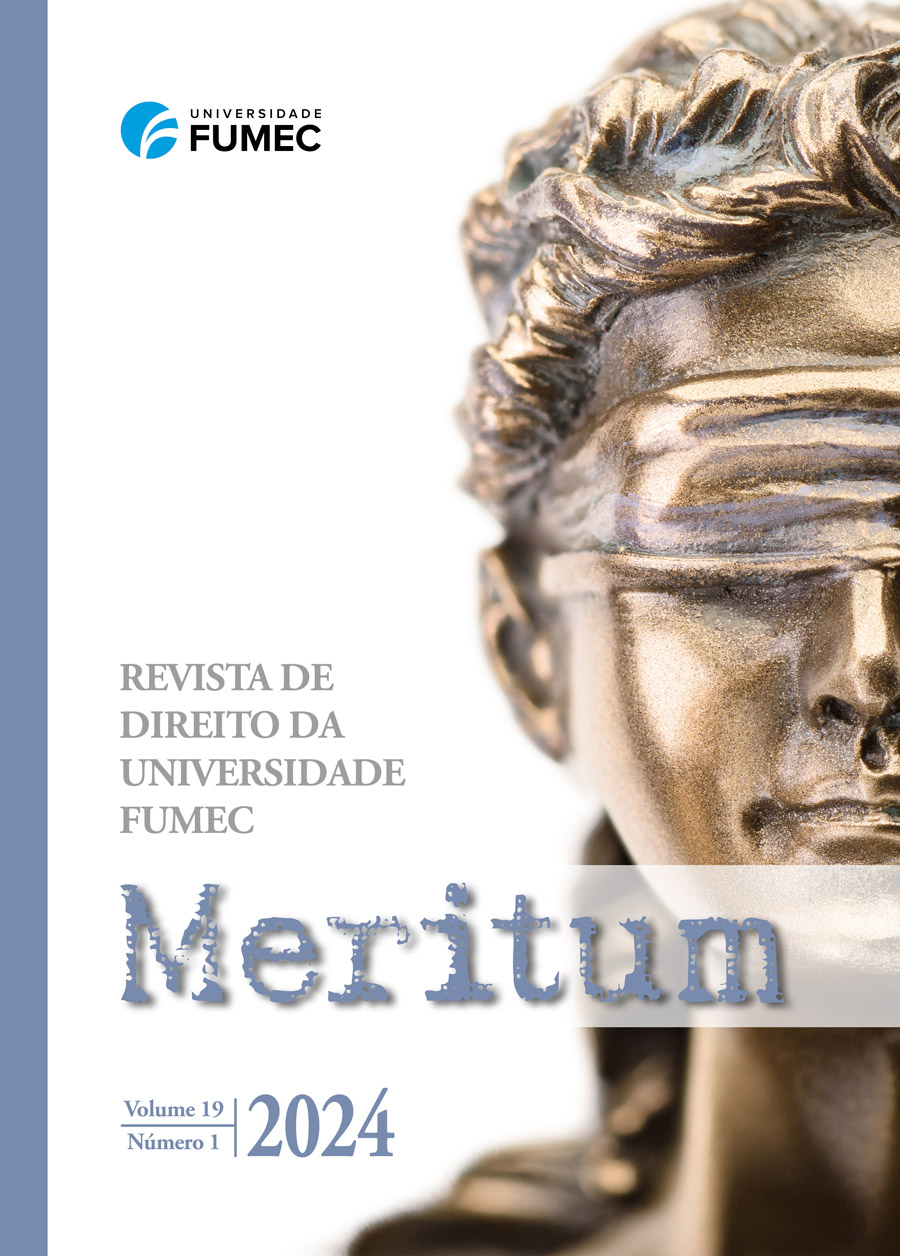TAXATION AND THE CONSTITUTIONAL (UN)FULFILLMENT OF AN EFFECTIVE BATTLE AGAINST HUNGER IN BRAZIL
THE NEED TO ESTABLISH A MINIMUM EXISTENTIAL FOOD ALLOWANCE.
DOI:
https://doi.org/10.46560/meritum.v19i1.9270Abstract
ABSTRACT: The general objective of this article is to conduct a systematic literature review, covering the time frame from 2013 to the present, on the role of taxation in the recent worsening of poverty caused by food shortages in Brazil. As specific objectives, it seeks to answer the following questions: 1) What is the amount necessary for a citizen to have the minimum food allowance in Brazil? 2) Would the minimum wage or public welfare policies such as emergency aid or Bolsa Família be sufficient? 3) Is the exemption from the minimum food allowance respected in Brazil? To this end, the hypothetical-deductive method was used, together with bibliographic research of qualified articles and books relevant to the topic, in addition to data from official institutions. It was therefore concluded that tax collection is partially responsible for food insecurity, since it continues to tax the consumption of basic food products and makes their access more difficult for the most vulnerable groups. However, the system itself has tools to change this scenario, through tax exemptions on basic food items and increased taxation on income and assets, reaching those who truly have the capacity to contribute. However, only the first will be done by the 2023 tax reform.
Downloads
Published
Issue
Section
License
Autores que publicam nesta revista concordam com os seguintes termos:
- Autores mantém os direitos autorais e concedem à revista o direito de primeira publicação, com o trabalho simultaneamente licenciado sob a Licença Creative Commons Attribution que permite o compartilhamento do trabalho com reconhecimento da autoria e publicação inicial nesta revista;
- Autores têm autorização para assumir contratos adicionais separadamente, para distribuição não-exclusiva da versão do trabalho publicada nesta revista (ex.: publicar em repositório institucional ou como capítulo de livro), com reconhecimento de autoria e publicação inicial nesta revista;
- Autores têm permissão e são estimulados a publicar e distribuir seu trabalho online (ex.: em repositórios institucionais ou na sua página pessoal) a qualquer ponto antes ou durante o processo editorial, já que isso pode gerar alterações produtivas, bem como aumentar o impacto e a citação do trabalho publicado (Veja O Efeito do Acesso Livre).






